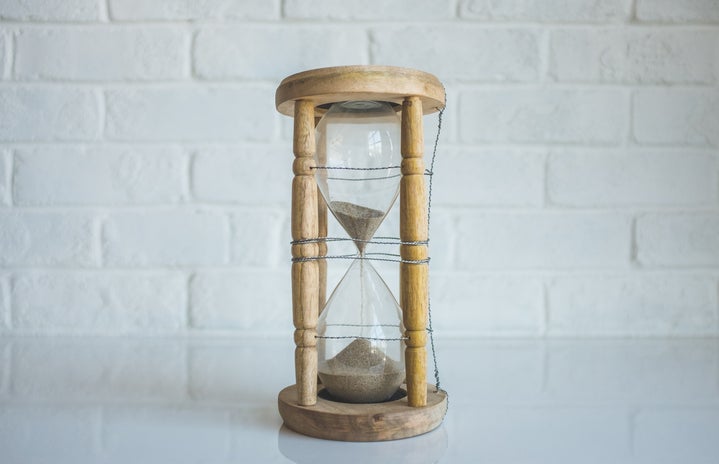Stress–it gets to all of us. Some swear to survive applying essential oils, drinking tea, going to the beach or having a glass of wine. Actually, some experts actually say some stress can actually be good for you. It’s a way to motivate yourself and others to get stuff done,seek for more and be more successful in life, but… how? People from the 21st century truly have it difficult because everything that is happening around the world affects us one way or the other. Everything that happens around us are stress factors and there’s no way to sugar coat it. As college students, we have it hard. Even having a tight schedule, we are still supposed to do well in school, work, do volunteer work too, have a social life, be part of clubs and associations, do exercise to be healthy and find our future husband or wife in this four years (lol, I’m kidding), but the point is…when do you know enough is enough? Should you say NO? If someone has the trick to survive all of this without consuming coffee excessively or sleeping 4 hours a day, please share the tip with the rest of the world. Meanwhile, we’ll just have to figure out how to be great without losing our greatness.
I’ve learned the hard way that balance is the key. You can push yourself to do many things, but you will feel and suffer the consequences. Stress is not only a mental event. Stress can and will get reflected physically on you. The signs would be as obvious as you would want them to be. Your body will start changing and you will feel it.
The American Institute of Stress conducted a study on which the results showed that more than 77% of the people who participated in the US had lived and felt stress, physically (Maclaren, 2015). This demonstrates that stress can interfere in your daily life in multiple ways if you don’t know how to control it. Here we’ve gathered a detailed list of some of the ways stress specifically takes place in your body and how you can identify it.
Stress can be playing its part in your musculoskeletal system by causing tension in your muscles and it can even get to your shoulders, neck and head. That can explain why you’ve been suffering from migraine lately, or your low back pain. Stress can even interfere the way you breathe (yes, that’s right!). It can make your breathing harder and increase asthma attacks in those that suffer from it. Up to the cardiovascular system: when you end up doing that research paper the night before it is due and it’s worth half your grade, your body responds to that stress increasing the heart rate and muscle contractions thus leading to an elevated blood pressure. This is called the “fight or flight” response (Tovian et al. 2015).
Another one that you might pass by unnoticed is how your stomach is reacting to the stress. During this process, your brain may become alert to the signals your stomach gives, reacting to the same feeling you have when feeling nervous: the “butterflies”, pain, nausea and even vomiting. This can lead to developing ulcers (Tovian et al. 2015). Stress can kinda manipulate “that time of the month” in women. Your PMS (Pre-Menstrual Syndrome) symptoms can be maximized and change the course of your period making you suffer from more painful cramps. On the other hand, an aspect some would never think could get affected by stress but actually can is sexual desire, due to the excess of certain hormones like cortisol. APA says that due to whatever is stressing you out, could make you distracted from connecting with your partner.
Many of us have probably been victims of this and this are only some of the implications of excessive stress in our lifestyles. Remember: yes, you have to work your way through life and accomplish your goals and dreams, but take one step at a time and enjoy the ride. It is more important to get to there being healthy and happy than to do so feeling sick. Don’t put too much on your plate for you to handle. Even though it seems impossible sometimes (or most of the time), take time out for yourself and do something you really enjoy. Read a book, go out with friends, to the beach, spend time with your family, do some exercise (it can truly be some type of therapy) and don’t leave everything for the last minute. Make realistic goals, eat healthy and don’t let stress physically get to you.
References:
- McLaren, E. (2015). Is Stress Good for You?. Psych Central. Retrieved on March 14, 2016, from http://psychcentral.com/blog/archives/2015/09/15/is-stress-good-for-you/
- Stillman, J. (2015, November 02). Actually, Stress Can Be Good for You. Retrieved March 14, 2016, from http://www.inc.com/jessica-stillman/actually-stress-can-be-good-for-you.html
- Tovian, S., Dr, Thorn, B., Dr, & Coons, H., Dr. (n.d.). Stress effects on the body. Retrieved March 14, 2016, from http://www.apa.org/helpcenter/stress-body.aspx
*Photo Courtesy from Pinterest


